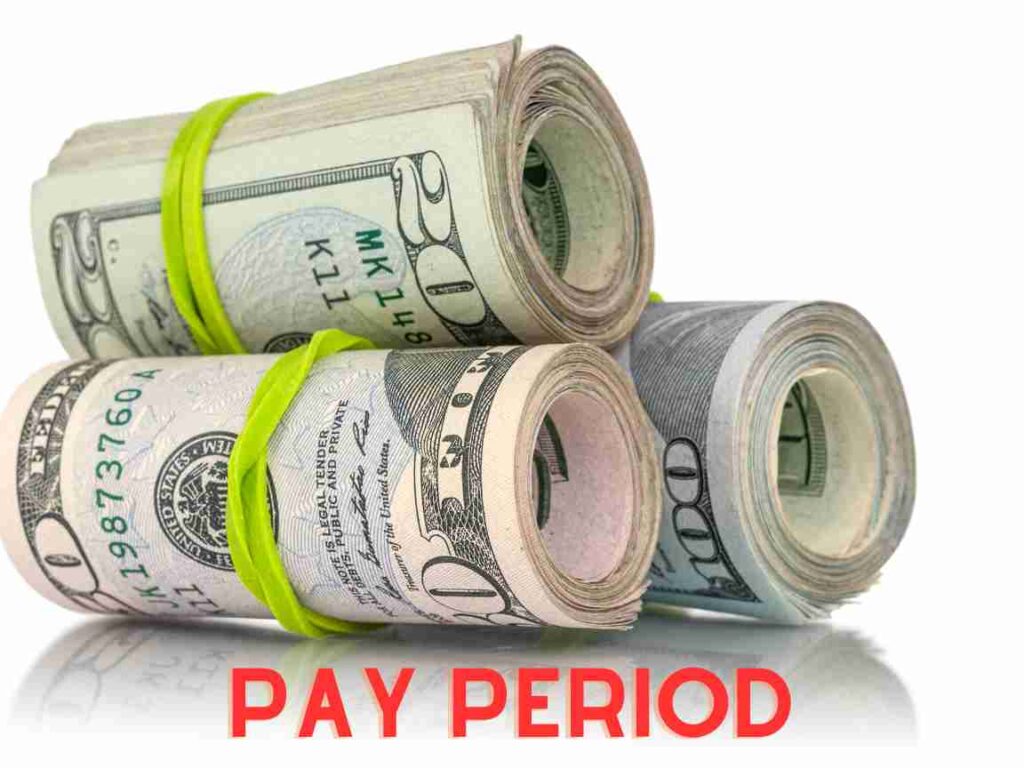Hello, everyone! I’m sure you’ve all been in that position, perhaps at the end of a hard day’s work or while you’re trying to balance your budget: you’re scratching your head, perplexed by this seemingly simple question – “how many pay periods in a year?” On the surface, it sounds quite straightforward, but delve deeper, and you’ll find that it’s a question with many nuances. In this post, I’m going to unpack everything you need to know about pay periods – weekly, biweekly, monthly, semi monthly.

Table of Contents
The Basics – What is a Pay Period?
When we talk about pay periods, we’re referring to the recurring length of time over which an employee’s work hours are recorded and subsequently paid. So, if you work hourly, your employer will tally the hours you’ve worked during your pay period and pay you accordingly. If you’re a salaried employee, your salary is divided by the number of pay periods in a year to determine each paycheck’s size. Employers generally stick to four types of pay periods: weekly, bi-weekly, semi-monthly, and monthly.
Common Pay Period Schedules – Breaking It Down
Let’s break down these pay period schedules.
- Weekly: This is the most frequent pay period. With this schedule, you’re looking at a paycheck every week, typically on a Friday, giving you 52 pay periods in a year. Industries with hourly workers, like retail or construction, often use this schedule.
- Biweekly: With this schedule, you’re paid every two weeks, usually on a Friday. This schedule gives you 26 pay periods in a year. It’s worth noting that two months in a year will have three paychecks instead of two.
- Semi-monthly: This schedule involves being paid twice a month, typically on the 1st and the 15th or the 15th and the last day of the month. This results in exactly 24 pay periods in a year. Many professional or white-collar jobs use this schedule.
- Monthly: The least frequent pay period, with this schedule, you’re paid once a month, typically at the end of the month, equating to 12 pay periods in a year.
Why Understanding Your Pay Period Matters
Your pay period isn’t just about when you’ll get paid; it impacts your financial health in significant ways.
- Budgeting: Knowing when and how much money you’re getting allows you to plan your expenses, savings, and investments effectively. There are some software and tools that help you with Money Management and financial planning.
- Cash flow: The frequency of your pay can impact your cash flow. For instance, being paid monthly requires more careful budgeting to ensure your money lasts the entire month.
- Tax liabilities: Your pay schedule determines when your taxes are withheld, and having more pay periods might mean more accurate tax withholdings.
Common Misconceptions – Let’s Set the Record Straight
Let’s debunk some common misconceptions about pay periods:
- All employers use the same pay period schedule: This is a common misconception. Different companies follow different pay period schedules. Your employer’s choice of pay period schedule can depend on various factors such as industry norms, company size, payroll costs, and even state laws.
- Pay periods don’t affect tax liabilities: This is another fallacy. Your pay period schedule can have a direct impact on your tax obligations, as it determines when and how much tax is withheld from your paycheck. The more frequently you’re paid, the more accurate your tax withholdings are likely to be.
How Many Pay Periods in Year – Table to Simplify It All
To provide a clear snapshot of what we’ve discussed, here’s a table that outlines the number of pay periods in a year based on the four common pay schedules:
| Schedule | Pay Periods |
|---|---|
| Weekly Pay Periods in Year | 52 |
| Biweekly Pay Periods in Year | 26 |
| Semi Monthly Pay Periods in Year | 24 |
| Monthly Pay Periods in Year | 12 |
Conclusion
Understanding your pay period is more than just knowing when your next paycheck is coming. It affects your budgeting, financial planning, and even your tax liabilities. So the next time you find yourself asking, “how many pay periods are there in a year?” remember, the answer depends on your employer’s pay schedule. And don’t forget, understanding this is a critical step towards achieving financial wellness.
Now that we’ve demystified pay periods, I’d love to hear about your experiences. How has your pay period affected your budgeting and financial planning? Share your stories in the comments below, and let’s continue the conversation!
Here are additional articles that deal with related topics:
- How to Write Check Amount in Words with Cents
- Dream Retirement: A Financial Independence Retire Early (FIRE) Perspective
